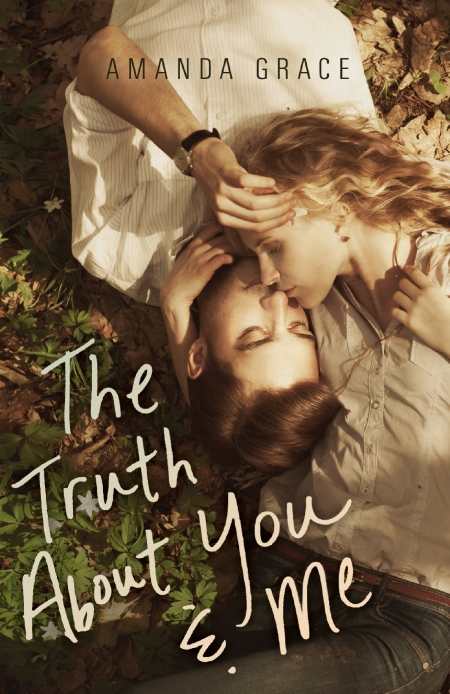
The Truth about You and Me
Readers will get lost in Madelyn’s brooding narrative and pressured life, feeling the chemistry with her young teacher.
In her third book, Amanda Grace has once again created a thoughtfully drawn female who will make readers want to reach out and shake her into reality. While most of Madelyn’s problems and feelings are perfectly identifiable—most teens question their identity—the extent of her issues borders on crisis.
Sixteen-year-old Madelyn Hawkins is exhausted by herself and the pressures around her. A chronic overachiever pushed by both her parents to succeed, Madelyn is tired of being seen as someone she no longer is, yet doesn’t exactly know who she wants to be. Then suddenly she meets Bennet, who empowers Madelyn to feel like she can be whoever she chooses. The only problem is that Bennet is her handsome biology professor at the local community college where Madelyn is taking classes as part of an advanced high school program. Bennet has no idea Madelyn isn’t a college-age student. In deciding to hold on to Bennet at any cost, Madelyn chooses to lie to everyone, including herself.
For readers, characters like Madelyn can be incredibly challenging to care about. Her actions are questionable, the damage she can do to another person too great. And at its heart, this book is all about Madelyn. Madelyn’s motivations, Madelyn’s feelings, Madelyn’s anguish—every page is her personal account. Connecting with her is key and Grace does everything she can to depict her sympathetically, including showing some of the overbearing parental influence. Those who try to understand her will find an authentic, sometimes “lovesick” teen who has a desperate need to define herself.
Grace paints the blissful moments of Bennet and Madelyn’s relationship in a way that many romance readers will enjoy. The ease and chemistry between the two will make any reader want to be in love the way Madelyn feels she is. The two must hold off on any physical relationship until Bennet is no longer her professor, which allows Grace to create a number of romantically charged moments. When the two do become physical, it does take the book into an older teen category.
The holes in the story are mainly from the plausibility of a romance between a sixteen and twenty-six year old. Bennet sometimes seems too young, and it seems unlikely that in all their time together nothing indicates Madelyn is still in high school. Since the book is told in letter form, almost a journal, Madelyn’s mooning could tire some readers.
The drawn out brooding makes it all the more rewarding when Madelyn finally, quietly, develops on her own identity. The honest resolution makes for a satisfying ending for those who want to and can get lost in Madelyn’s head and heart for a short while.
Reviewed by
Alicia Sondhi
Disclosure: This article is not an endorsement, but a review. The publisher of this book provided free copies of the book to have their book reviewed by a professional reviewer. No fee was paid by the publisher for this review. Foreword Reviews only recommends books that we love. Foreword Magazine, Inc. is disclosing this in accordance with the Federal Trade Commission’s 16 CFR, Part 255.
